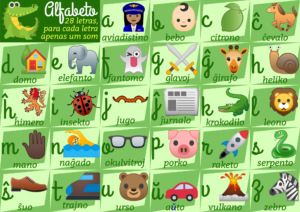Opinion
Early Rejser: The language of learning
Adam Wells
This article is more than 4 years old.

Entranceranto? After Brexit, the EU will be looking for a new language (photo: flickr/Eugenio Hansen)
There I was. Five years in Denmark. A Copenhagen homeowner with a kid on the way. A job, hobbies and friends to cherish. And doubts weighing heavy on my heart.
Learning it like a native
Why hadn’t I learned Danish yet? How integrated into society would we ever be without it? Should we pack our bags and reboard HMS Britannia? She may be rudderless and headed for the rocks, but we’d understand what her crew of fools were saying as she sank.
Now here I am, a week later, my doubts forgotten. My phone’s lighting up with a familiar message from a new friend. ‘Hi! It’s Duo. It’s time for your daily language lesson.’ I jump to it. It all just clicks now somehow. I’m thinking and speaking like a native.
Not a native Dane, obviously. I’m talking Esperanto, the constructed auxiliary language with a phonetic writing system, regular rules and pronounceable vowels. But Esperanto’s logic aside, what’s the logic in learning it for a dad-to-be in Denmark?
Rule Britannia then?
“Danes talk like they have potatoes in their mouths,” is a common, comical observation that has serious implications.
Spoken language diverging significantly from its written form is a path to extinction. Spoken Danish has rapidly evolved in recent decades, and phonetic distinctions one expects from reading it are no longer there when it’s vocalised.
Those who overcome this, and other difficulties, to learn Danish – from native sons to diligent immigrants – will increasingly find they don’t need it.
English’s power is growing, not just through imported phrases but in being seen as a more valuable alternative to Danish. Most university courses and published research are in English, and Danish businesses are shifting to English to boost their global relevance. This voluntary domain loss and taste for swallowing syllables means the Danes are eating their own.
Esperantover?
Esperanto knows all about losing out to English. LL Zamenhof invented Esperanto in 1887 as a simple, universal second language that could remove barriers and ease tensions between nations. But tragically, such nationalistic tensions saw Esperantists interred and murdered by Nazis and Stalinists.
Esperanto survived to be rendered obsolete by the emergence of English as lingua franca. But it’s not dead yet. The internet gave it new life, and though we have little use for a universal language, its simplicity makes it universally useful.
Learning to learn
We don’t teach children the recorder because we want a world filled with recorder players, but because we want to introduce them to music without boring or frustrating them to death. Its size and simplicity mean you can manage it with tiny hands and produce pleasing sounds quickly.
Esperanto is the recorder of languages. Numbers are a breeze – count to 10 and you can count to 100. Building vocabulary is a fast, multiplicative process thanks to regular relationships between roots, prefixes, suffixes and word class – learn one word, learn many. Creative, engaging language use is possible earlier than with other languages, where interest can wane during the prolonged stage of memorising words and rules.
As with music, it’s important to introduce language learning in a way that encourages continuing interest and engagement. Danish is a bassoon. Hand it to someone too early and they’ll be forever put off by its complexity and the awful sound it makes. I should know.
The logic of me learning Esperanto is to learn how to learn a language, and to learn to love it. And to have a recorder I can introduce my child to before they get handed a bassoon. Assuming Danish can survive that long …

About
Adam Wells
Adam is a nanny, a multi-sports fanatic and a budding ultra runner. He was faster off the mark than his fellow Brits, quitting England for Denmark moments before they voted to stay out of Europe. When he isn’t caring for kids, screaming at a screen or tearing up his feet, he writes unsettling poetry and prose.










































